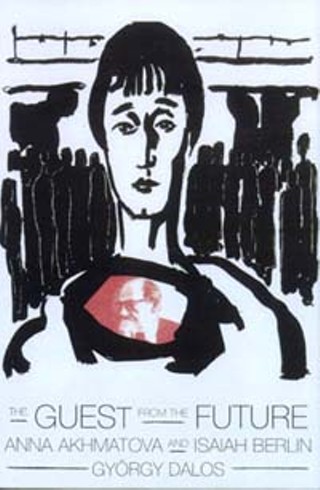The Guest From the Future: Anna Akhmatova and Isaiah Berlin
by Gyogy Dalos
Reviewed by Scott Blackwood, Fri., Dec. 24, 1999

The Guest From the Future: Anna Akhmatova and Isaiah Berlin
by Gyogy DalosFarrar, Straus, & Giroux, 256 pp., $25
In Gyogy Dalos' study of Russian poet Anna Akhmatova's literary fall and redemption, The Guest From the Future, brief encounters contain lifetimes. Dalos' book details the reverberations (real and imagined) of Akhmatova's lone visit in 1945 with the British historian of ideas, Isaiah Berlin, the most damaging of which was the harsh denunciation of her poetics by the Soviet Central Committee that essentially censored her. But it's really the blurred line between Anna Akhmatova's real and imagined worlds that Dalos seems interested in and captures most successfully.
Well into the book, Dalos draws attention to an abbreviated telephone conversation in 1956 between Berlin and Akhmatova that reveals how aware Akhmatova was of this blurred line and how freighted her language had become with the sense of her own fate as a "Soviet" poet. Throughout their conversation, Akhmatova cryptically refers to a Chekov story, "Ward #6," as representative of the general plight of Soviet writers and citizens. In the story, Rogin, a lonely doctor in a mental asylum, initially justifies his own inhumanity to his patients by absurdly claiming that so long as asylums exist, someone must fill them. But as Gyogy Dalos points out, Chekhov's story also resonated on the personal level for Akhmatova as a symbol of her earlier meeting with Berlin in 1945. In "Ward #6," Rogin comes to view his paranoid patient as the companion he has been waiting for, someone with whom he can share a kind of communion. "The point is this," Rogin says. "We see in each other people capable of thought and judgment, and that gives us solidarity together, no matter how different our individual views may be." As Dalos makes clear, the same might have been said of Akhmatova's view of her relationship to Berlin, around whom, after 1945, her poetics wound. And like Ronin, who is denounced and eventually committed to his own asylum because of this solidarity with his patient, Akhmatova found herself partially imprisoned by her meeting with Berlin, both politically (she felt her son was imprisoned because of her "dissident" status) and personally (she was not able to be with the companion she had waited for, so she idealized him in her poetry).
The Guest From the Future is compelling as a chronicle of the absurdities of Soviet life and letters. It reveals, amazingly, Stalin's early interests in avant-garde poetry -- his love of Walt Whitman's poetry, in particular -- in contrast to his condemnation of the same movement later, when he felt it politically necessary. But Dalos' emphasis on chronicling and analyzing totalitarianism's effects on Anna Akhmatova and those in her orbit seems to overwhelm the narrative of a poet and her muse. At times Dalos (who is a novelist by day) seems to forget the fiction writer's maxim (although indispensable to any narrative) of not giving away too much too soon. As a result, the reader learns details before they can contribute to and often after they cease to matter (the sharp break with her son is one such case). And when Anna Akhmatova's art finally triumphs (her visit to Oxford, her posthumous rehabilitation), the reader is left with the slumped weight of fact rather than accumulated insight into how "the guest from the future" helped her get there.










